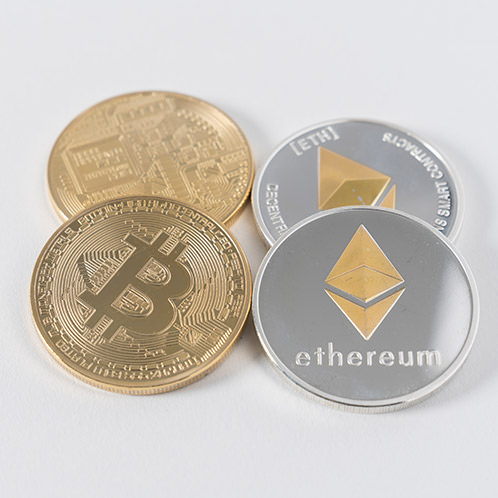While public blockchains like Bitcoin and Ethereum grab the headlines and hype, private blockchains are quietly solving real-world problems and transforming businesses in the process. While many of us have heard about crypto-currencies and red-hot NFTs, the underlying technology of blockchain is less discussed. However, blockchain alone is transforming business operations across a whole spectrum of industries. Organizations like Walmart and US FDA are using blockchain to address complex challenges they face on their supply-chain network.
Although technically quite complicated, the essence of blockchain is easy to understand. Blockchain is a shared, immutable ledger allowing participants to trust the system as a whole without necessarily trusting any of the participants. Everyone on that network has their own copy of the ledger and is confident, based on mathematical structures of cryptography, that every copy is the same. Whereas previously, each entity stored proprietary data in proprietary data stores, and communication and reconciliation of data was difficult. With blockchain, these same entities can set up a shared datastore where reconciliation is unnecessary - the data is invariably replicated and in sync. Before we showcase some transformational business cases for using blockchain, we need to explain the crucial distinction between a public blockchain like Bitcoin and a custom-built private blockchain for a specific business challenge.
Public blockchains are open to the world. Anyone can become a miner1 and record transactions in the blockchain. Public blockchains are also open to anyone who wants to participate; this usually means buying and selling in the marketplace. Public blockchains use crypto-currency to pay miners and to buy and sell goods like NFTs. In contrast, private blockchains are only open to a select group of participants - think Walmart and their carriers. Participant and validator access is restricted. No crypto-currency is needed because the interested parties agree to the cost and already work together in the real world. In the table below, I’ve highlighted some of the key differences between the two types of blockchains:
| Public | Private | |
|---|---|---|
| Example |
Bitcoin, Ethereum, Litecoin etc. |
Hyperledger, Hashgraph, Corda, etc. |
| Access |
Open, anyone can join the network |
Permissioned, members join the network via invitation |
| Data Handling & Trust |
Participants are Anonymous and require no trust among members |
Participants are known and some level of trust is already established |
| Consensus |
Proof-of-work, proof-of-stake consensus protocols for adding in a new block |
Approved participants initiate adding of a new block |
| Transaction Speed |
Slow |
Fast - much less node to participate in the ledger, the performance is faster |
| Other factors |
Not easily scalable |
Better Scalability - allows adding nodes and services on demand; Compliance Support - compliances are industry specific, having control over infrastructure enables private blockchain networks to adhere to these compliances seamlessly |
In our research, we see three primary conditions that make private blockchains a good fit for businesses:
- Network members know who they are dealing with
- Transactions are usually confidential between participants
- Membership is controlled
According to Gartner, By 2025, the business value added by blockchain will grow to slightly more than $176 billion and then increase dramatically to over $3.1 trillion by 2030.
In any business process where one or more organizations work together and must agree on a consistent set of data, blockchain can be a game-changer. The simple reason is that proprietary systems with siloed data do not easily talk to one another. Over the last decade, many technical solutions have been developed with varying degrees of success. Current solutions use SOAP and RESTful APIs to enable one proprietary system to communicate with another. Blockchain represents a different approach - a replicated ledger becomes a new source of truth for all interested parties. This approach leads to a drastic reduction in data discrepancies and streamlines business processes. It’s a win/win for everyone involved.
One example where a private blockchain greatly improved efficiency and data accuracy is the initiative rolled out in 2019 by Walmart Canada to transform their supply chain. Walmart Canada maintains a separate data store from each of their independent carriers. Before implementing a private blockchain, data discrepancies on invoices occurred in the range of 70% of all invoices These discrepancies led to delays in payments to carriers and forced both parties to spend valuable time and money reconciling the data. Sometimes disputes could take months to resolve. “It was leaving dollars on the table,” said Francis Lalonde, Walmart Canada’s vice president for transportation. After deploying a blockchain-based solution in 2019, data inconsistencies have fallen to less than 2% of invoices. According to Lalonde, “Something unusual has to occur to have a dispute now. There are small items to resolve, but as we all have the same information, there is simply no need for disputes anymore.”
Another example is a system built by the USFDA, UCLA, and LedgerDomain called BRUINchain. The BRUINchain system requirements include scanning the drug package for a correctly formatted 2D barcode, flagging expired products, verifying the product with the manufacturer, and quarantining suspect and illegitimate products in the last-mile: pharmacist to patient. As an immutable, time-stamped, near-real-time, auditable record of transactions, BRUINchain makes it possible for supply chain communities to arrive at a single version of the truth. The system tracked every dose of medicine in the trial at UCLA Health, down to which refrigerator it was stored in across the campus. It initiates notification for suspected counterfeit and when the drug is expired to key stakeholders, resulting in enhanced timeliness and reduction in paperwork burden.
Private blockchain solutions are helpful for accounting and record-keeping methods without losing autonomy and running the risk of exposing sensitive data to the public internet. Both Walmart and BRUINchain use private blockchain networks to replicate and share data, allowing them to work seamlessly with partners towards a common goal. Here at Cantina, we see enormous opportunities for businesses to use private blockchains to streamline business and be more efficient and competitive in the marketplace. If you have a challenge in your business where communication with partners leads to data inconsistencies or you are spending valuable time and money reconciling data with business partners and affiliates, contact Cantina and see how we can help.
-
Mining is the process of verifying transactions and recording them in the blockchain ledger. These transactions are verified by the participants in the network with required hardware and computing capabilities. These participants are called miners. ↩



